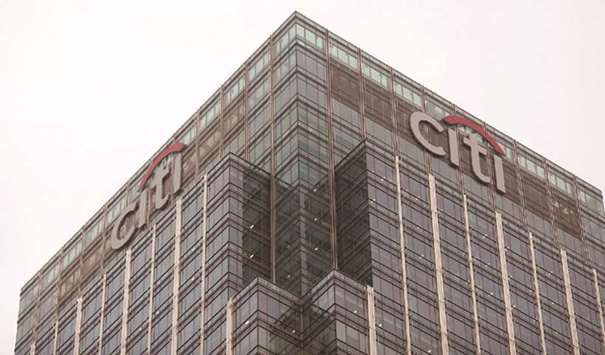Investors haven’t exactly embraced Citigroup in 2018, leaving its stock behind competitors. But analysts have been falling in love.
Shares of the New York bank – known for its vast overseas operations – have stagnated this year on concerns it could get burned by a rout in emerging markets and a looming trade war. Yet a growing number of analysts are suggesting it’s primed for brighter days after building cash-management relationships with global companies and shaking up senior management.
Citigroup’s stock is now both a laggard among large US commercial banks and one of the most-recommended, with pickers making the case it’s undervalued.
“What’s exciting from an investor standpoint is that there’s a new set of eyes that will be taking a fresh look at Citigroup,” said Mike Mayo, an analyst at Wells Fargo & Co, who suggests a new management team could help double the stock’s price over the next four years. “But this is not an ‘I love you’ letter, this is more like ‘Hey, there’s enormous potential that Citi is not realising.”’
“And we think there could be some catalysts for doing so,” he said.
Once the most valuable bank in the country, Citigroup tumbled especially hard during the financial crisis, recording more than $140bn in losses and asset write-downs. It drew a bigger bailout than any other US bank and then spent much of the past decade repairing itself, selling $800bn of sub-prime assets and exiting more than 20 businesses.
“Our restructuring is over,” chief executive officer Mike Corbat declared last year at the company’s first investor day since 2008. “We aren’t going to take outsized risks. We aren’t going to get into hobbies or into new businesses which are tangential to our strategy. We don’t need to. We like the hand we’re playing in today’s environment.”
Despite such pledges, Citigroup’s history is hard to forget. An investor who bought shares of the four largest US banks the day Lehman Brothers Holdings filed for bankruptcy in 2008 would still be nursing a 50% loss on Citigroup. The other three bets would be profitable, in some cases doubling or even quadrupling in that time. This year, Citigroup is trailing the modest 2% advance in the KBW Bank Index.
Citigroup is pointing to some of its traditional banking businesses for future growth as it seeks to pay out more capital to shareholders. Lending via credit cards, for example, is supposed to contribute to growth in its consumer business.
And within the institutional clients group – housing investment bankers and traders – Corbat has tried calling attention to what he calls its backbone: the much less flashy treasury and trade solutions business. The unit helps Corps handle their cash at home and around the world. The idea is those same companies will eventually hire the bank to meet other needs, such as advising on mergers and acquisitions, underwriting securities or making big foreign-exchange trades.
This year, the activist fund ValueAct Capital Management amassed a $1.7bn stake in Citigroup, making the bank its biggest holding. ValueAct has said it was drawn to the treasury and trade solutions unit, noting the business serves 80% of Fortune 500 companies.
“Some of our most successful investments have been made in situations where other investors cannot seem to shed their past perceptions of a company’s prospects,” ValueAct wrote in a letter to investors. “This was the case with Microsoft and we believe it is also the case with Citigroup, which has long been regarded as the laggard of the large universal banks.”
The fund’s stake also keeps pressure on managers not to become complacent, Mayo said.
This month, several analysts have welcomed Citigroup’s efforts to refresh leadership under Corbat. The biggest announcement was the promotion of Mark Mason to succeed longtime chief financial officer John Gerspach in March. The firm has also disclosed shakeups in investment banking, consumer operations and regional oversight.
The next generation of managers will have to hit targets for profitability and cost cuts that analysts have previously said may be too lofty. This month, the firm confronted remaining sceptics, maintaining a target for efficiency, promising to eliminate even more expenses than previously forecast and raising its target for profitability.
“We feel confident we’ll continue to strengthen our performance and deliver the returns our shareholders expect and deserve,” Citigroup said in a statement for this article.
Still, doubts are hard to stamp out. Vern McKinley, a financial services consultant who recently published “Borrowed Time,” a history of Citigroup and the bailouts it received, said he suspects the firm’s reassuring focus on traditional banking won’t prevent future stumbles.

The headquarters of Citigroup in London. Citigroup’s stock is now both a laggard among large US commercial banks and one of the most-recommended, with pickers making the case it’s undervalued.
